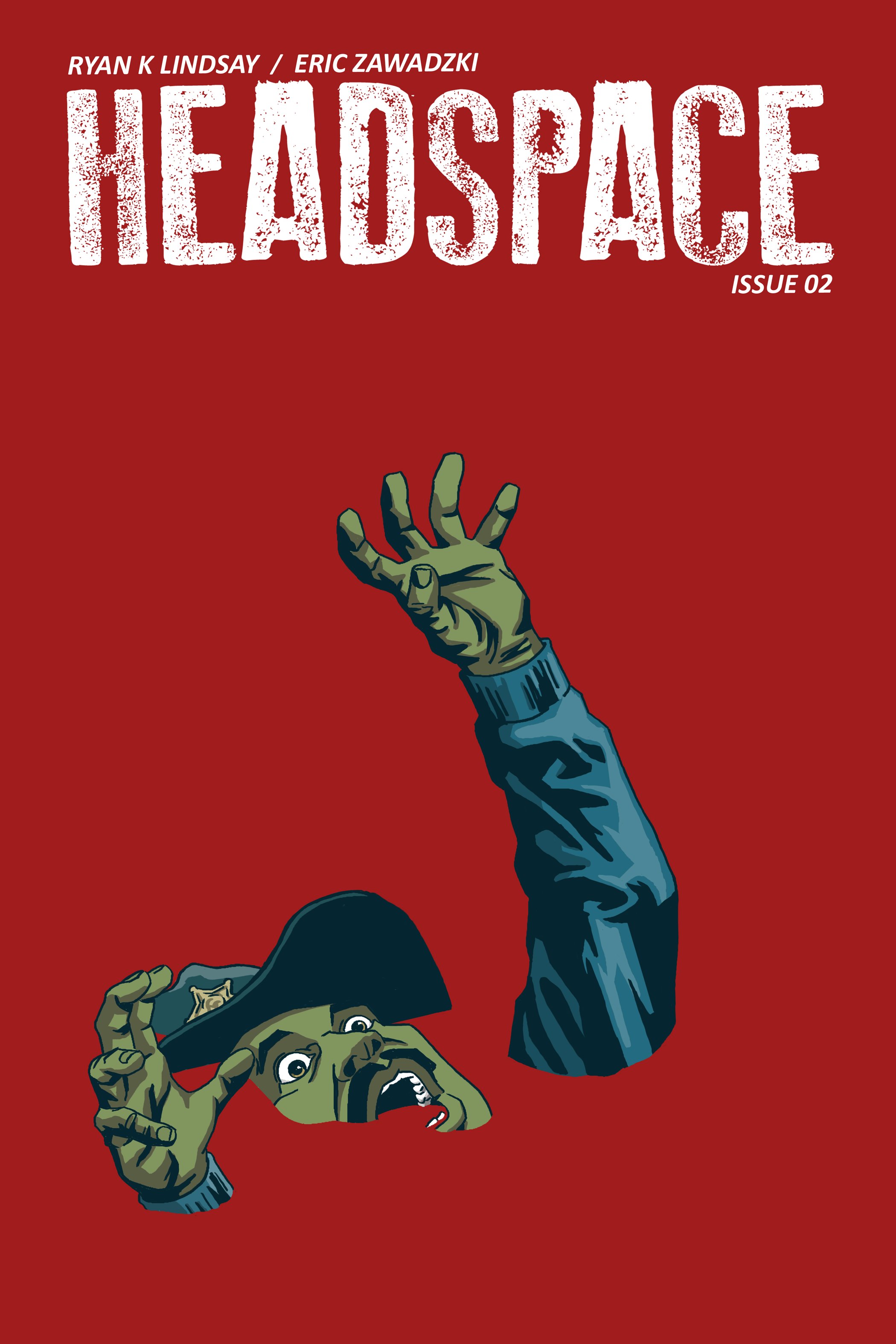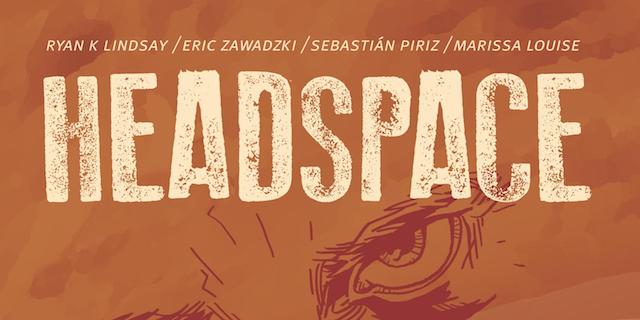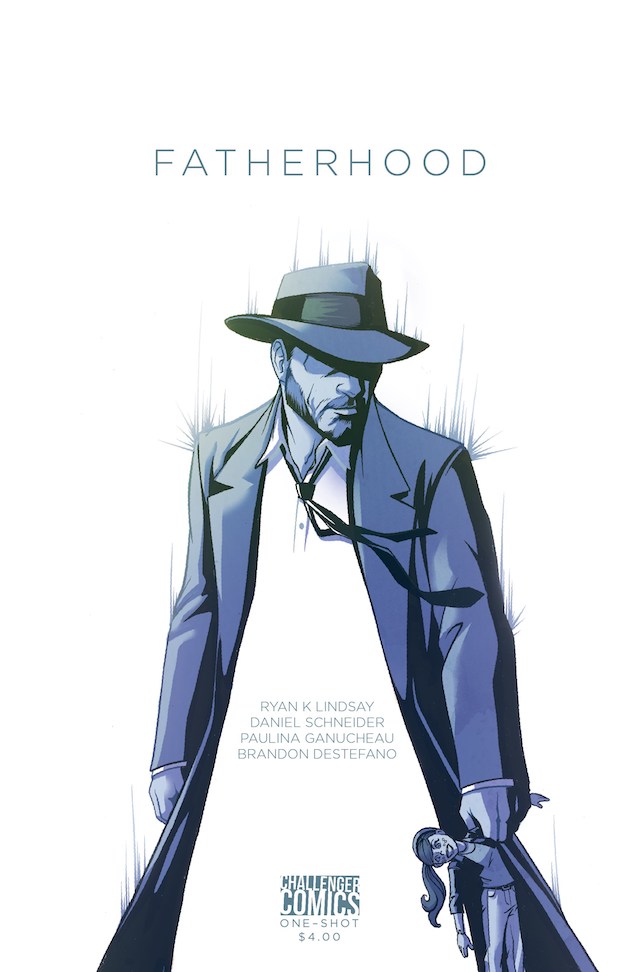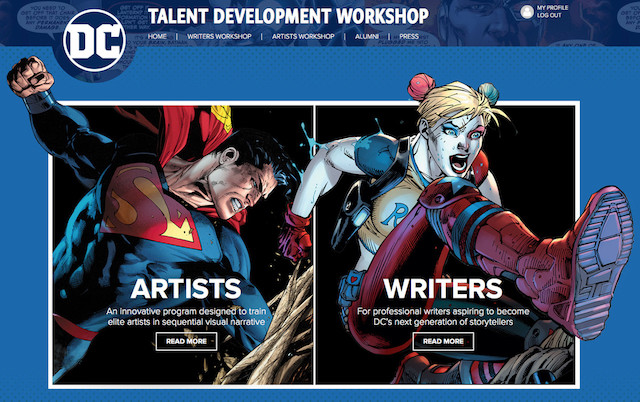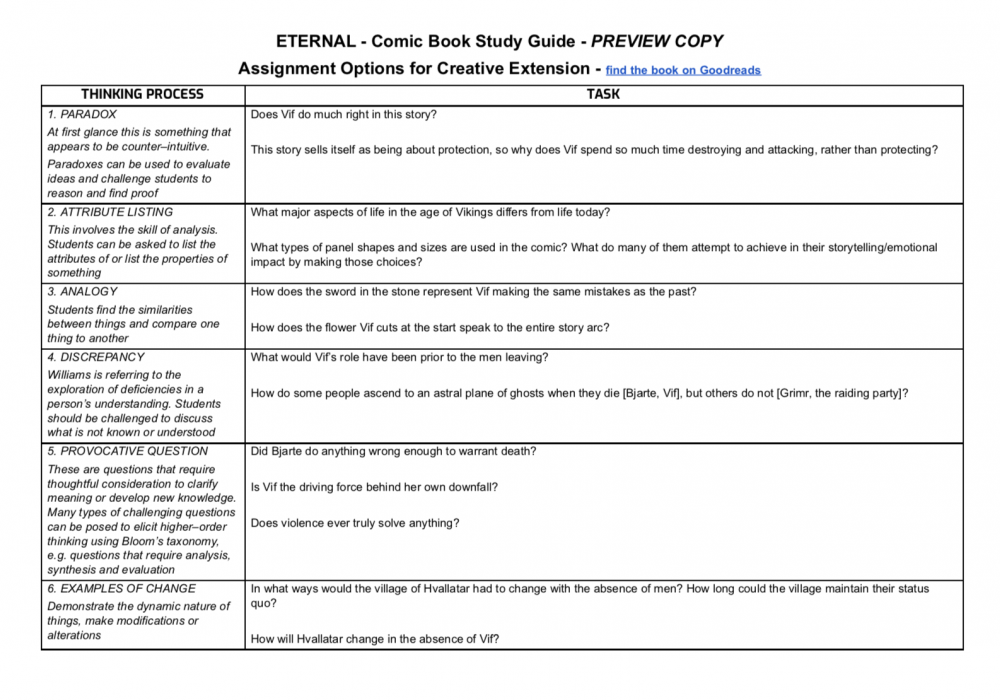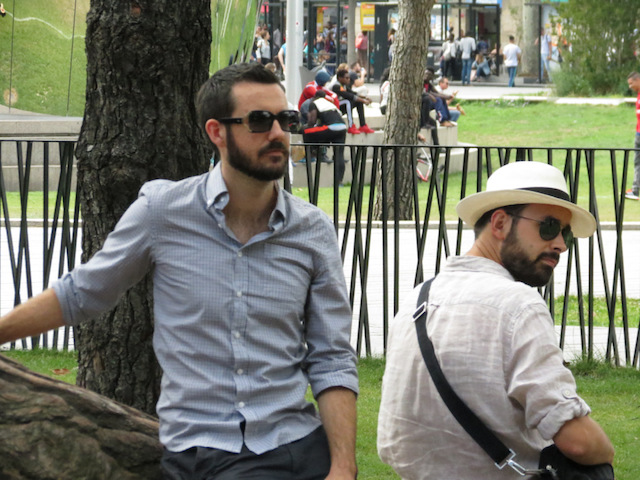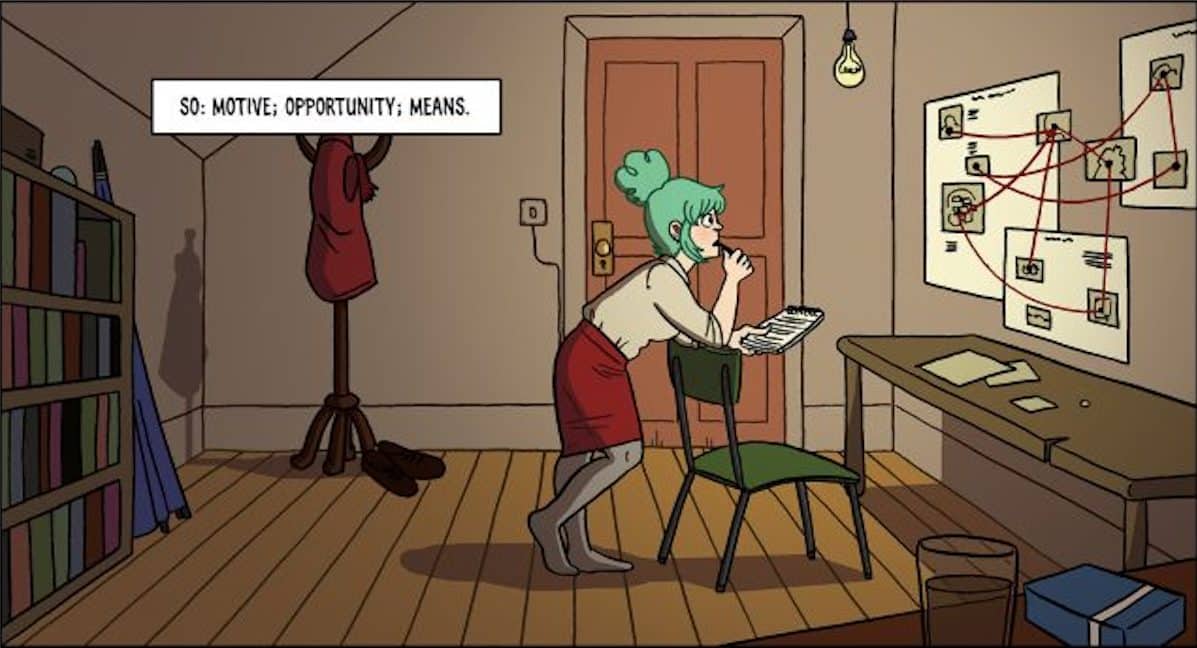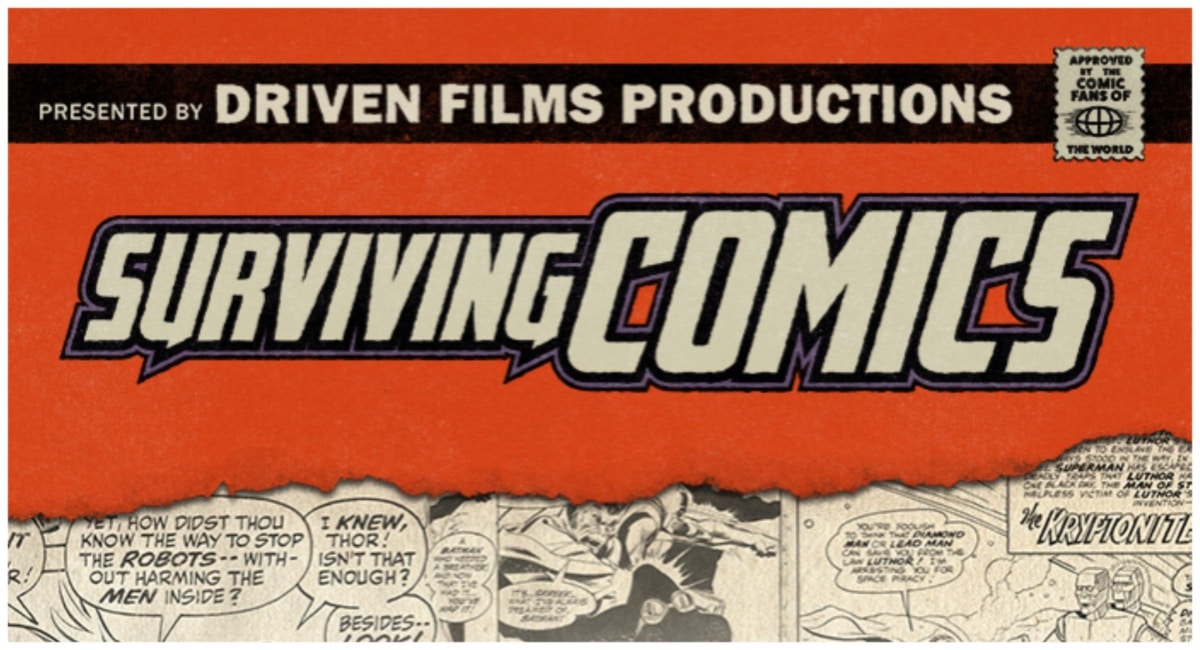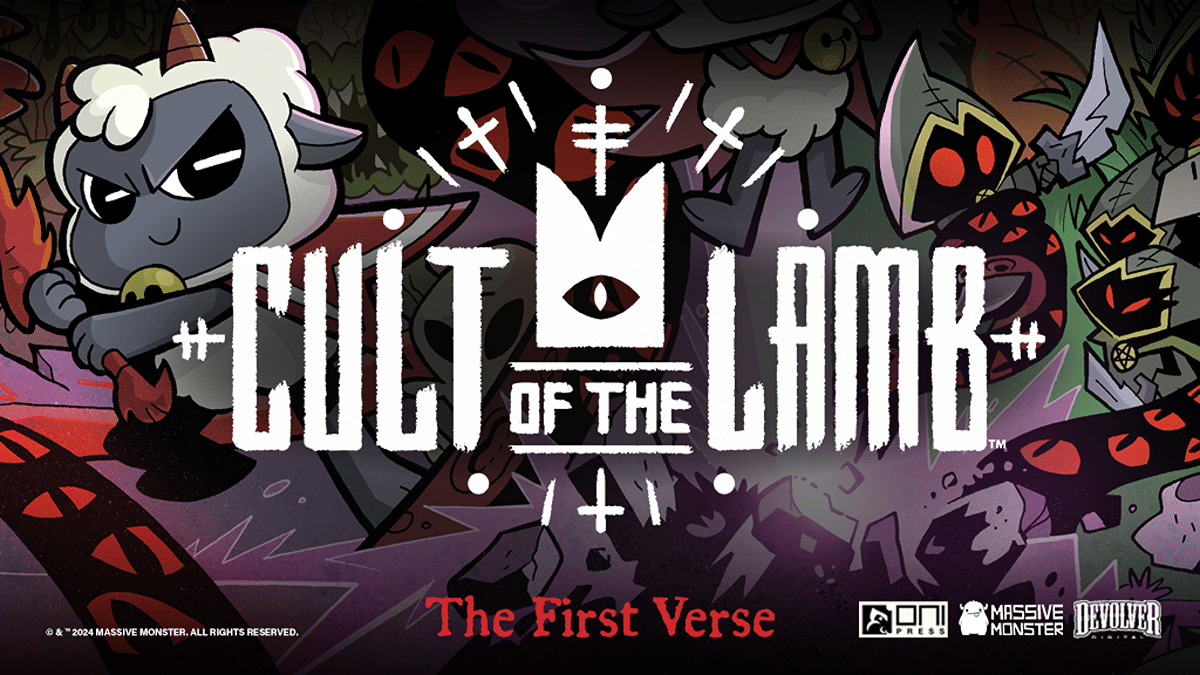I’ve had two chances to interview Ryan K. Lindsay and discuss industry topics such as crowdfunding, digital comics, and building a fanbase. But anyone who’s read backmatter in his comics can tell you he also has fascinating insights into art and storytelling, which inform the way he writes. I was excited to dive into Lindsay’s psyche, and talk about the recurring themes in his writing, why he’s creating comic book study guides and his experience in the DC Writers Workshop. I hope you enjoy what I believe is a very riveting discussion.
You’ve stated in backmatter and bonus content that you write to wrestle with subjects in your real life. In your experience, has writing proven to be an effective way to do that, or does it mostly just lead to the creation of interesting comics?
I’m glad that it often leads to interesting comics, and that’s the primary goal/focus, but I also know it’s a great way of finding clarity on things I need to think about on some level.
There’s the benefit that humanity seems to think more clearly when approaching a topic obliquely through metaphor/parable. I wish we could just sit down with the bare bones of it, but I don’t think our brains are hardwired that way. You can teach a child a concept, or you can hide a concept within a story and then the child will have more points of reference to connect to that concept. This is because narratives engage the brain on a multitude of levels, they excite, scare, rattle. And it’s no different when writing the damn things, either.
Toni Morrison said if there isn’t a book you wanna read then you should write it [paraphrase klaxon] and I’ve tried to do that with every book I’ve written. I don’t want a cold rehash of something that’s already been done. But there is a little aspect of myself that likes the fact I might lose myself in that topic for a year while I cook it up, research it, write it, monitor the project with tweaks and redrafts, and eventually discusses it as post-mortem in interviews, and my usually inevitable annotations [and now even study guides].
I also think if I’m writing about things I wanna tackle, then I’m gonna be passionate, and that’s going to make for better writing, too. I hope.
Several of your stories play with our understanding of what’s real and what’s not. Is that a subject you regularly ponder or is bending reality more of a tool to explore other themes?
I like the concept that whatever we think is rigid, is not. I think that’s because of a steady diet of Philip K. Dick novels over the past two decades. I also think it’s exceptionally true, and not just because we live in a world of alternate truths and fake news, but because we ourselves are not rigid things, and nor should we be. We evolve, change, grow, and this is how the world should be.
Everyone thinks they know who they are, but we only really know, for certain, who we were. Every minute changes who we are, but most won’t recognise this nor value it.
All magic was just science we didn’t yet recognise, and opening our mind to that means we’re a lot better armed for the future.
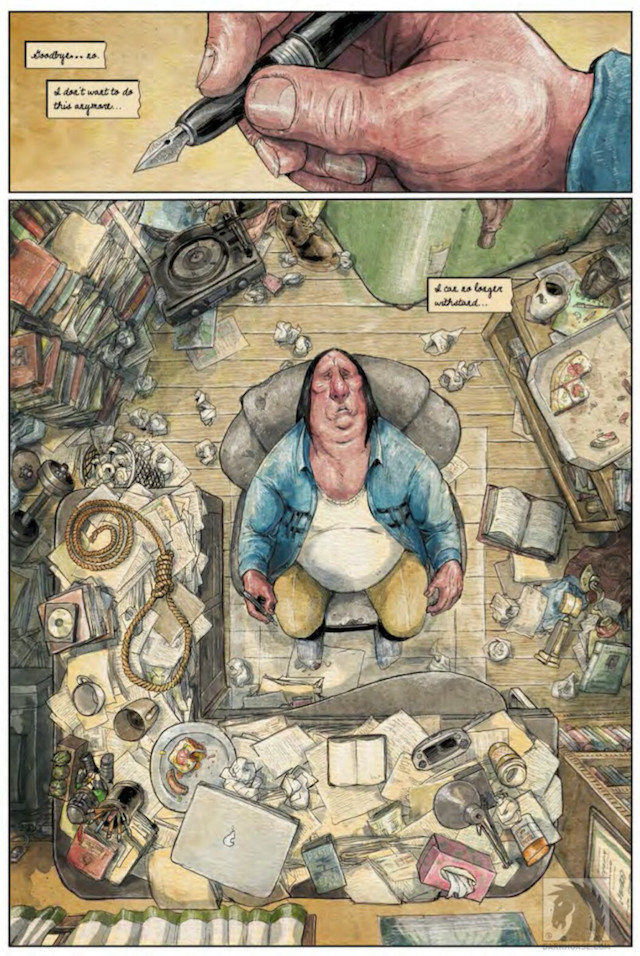
You seem drawn towards characters are in creative professions. Do you find them an effective way to insert yourself into the story?
I honestly try not to ‘insert’ myself into my stories. I am certainly a part of those worlds, and those characters, but I try not to write myself as one of the characters. I definitely am not Guy Harris from Negative Space, despite the fact we are both writers.
I think I like creative characters because they have a curious eye. But then so did Shane Garraty in Headspace, though maybe his was just more analytical as he was a cop.
Fatherhood is a central theme to many of your stories, it’s even the name of a one-shot you wrote! How has writing about the subject affected you as a parent?
It’s made me open to the fact I’m not a perfect parent. But by writing about it, I’m thinking about it, which means I’m trying. It means it’s on my mind a lot.
I heard about some research one time where they found that parents who buy books about parenting are statistically more likely to be better parents even if they didn’t read the book. Now, I don’t know what stats they took on ‘being a good parent,’ but I know the underlying truth was – if you’re invested enough to even just buy a book about parenting it means you at least WANT to do it well, even if you never read it, the intent is there and that intent probably shows through in your other actions.
I also think there’s an element of the Baader-Meinhof phenomenon for a lot of creative people, but it’s not just that we see something everywhere we look, it’s that it invades our creative thoughts, too. I was coming to grips with the many intricacies of parenthood, so naturally, I was thinking about it a lot, so it’s also natural it would appear in my work.
It comes as no shock to me to see many of my future projects consider the future, and how we work towards a better place, when this is something I’m so conscious of in everyday life, too.
Does seeing your scripts illustrated changed your perspective not just on the stories, but the themes within them?
By the time we’re getting final art in, our collaborations have usually locked in the themes. I’m usually just floored by how well the ideas are presented, and how damn often I end up looking at coloured art and then when doing my lettering pass on the script before sending it off to the letterer, I realise I can just delete captions and lines because the moment is so much better sold as a silent beat.
But I think that’s the goal of a great collaboration, you’re all on the same page, singing the same song, in tune, but with different instruments [note: that metaphor sucks].
What did you learn from the DC Writers Workshop, beyond writing stories about DC heroes?
I learned a hell of a lot, but the biggest stuff was the idea of the marriage of story theme and scope. Superhero comics, at their best, have something to say – but you need to say it within the genre. So how do we make fights and huge epic events, still matter on a character level? It was a great process to go through, I loved that class.
Are you working on any DC projects at the moment?
Nothing official at the moment, sadly, though I’m just sitting in the shadows waiting for my chance to pitch Adam Strange, I’ll be honest. And I’m happy to wait :]
You recently started a Patreon for the production of comic book study guides. Is making them a significant time commitment?
I certainly put a proper amount of time into it, yes. I’m not dashing them off, but I’m making them so they are good enough for what people are paying for them, and so they’re something of which I’m personally proud.
Does it take time and energy away from writing comics, or does it flex very different muscles?
I only have 24 hours in my day, so technically writing a study guide is an hour I’m not writing comics – but I also believe in the concept of professional development, even in an ethereal realm of freelance comic book writing. But there aren’t a lot of places to go to study, but I like to keep my brain active.
In the same way, I absolutely loved being in the DC Writers Workshops, I love writing these study guides. They get me thinking about what I’m reading, and they made me unpack story and theme in new ways. I’m a smarter person after every single guide I write, so I hope other people are smarter after reading them and using them.
So I try not to think of this gig as adversarial to the comics, it’s just adding a new secret compartment to my comic war chest, and then I have more to draw from when making them. The same way I make time every day to read a comic and read 10 pages of whatever novel I’m in, these are all necessary tools to be a creator.
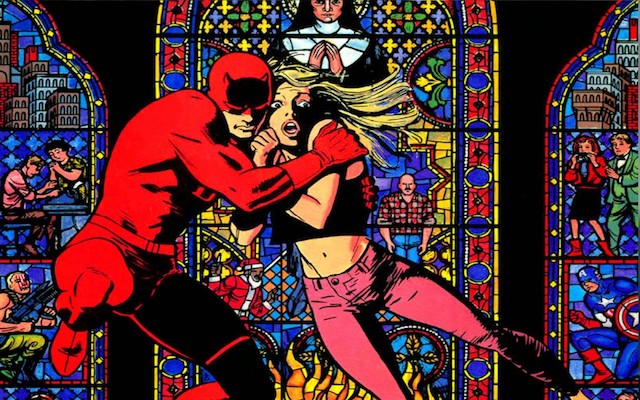
How has developing the study guides developed your own sense of storytelling?
It constantly shows me how smarter people than myself pull off the magic trick that is a great story.
I often think about Matt Fraction sitting in his office, blocked a little on a script, so he took to Daredevil: Born Again and started analysing pages. He wrote a Tumblr post about it, and it’s absolute genius. If he can take the time to load his brain up, then so can I, so I hope it’s working. I feel like it’s working [though I’m astronomical units away from Fraction].
Your Patreon and Kickstarters seem more geared towards creative pursuits and building a fanbase than making a lot of money. Does a full-time job give you that freedom?
I guess it does, yeah. I’ve not dived into complete full-time freelance writing, for many reasons, and so I’m not scrambling to make ends meet. This also means I am, however, scrabbling for time, but we all have our cross to bear. I’ve not considered that this gives me the opportunity to not need to milk every single money-based opportunity, true, but I also know I approach every single situation wanting to make money, but also wanting the transaction process to feel fair for all involved. I want to offer what I’d be willing to pay.
I also know I’d rather support myself with a great community who is there for the exact same slice of nerdery I’m offering – in this case, comic study, craft consideration, process posts, etc.
The aim is, then that these people realise we’re on the same page, and they support you down the track with whatever I’m making.
How has that benefited you over the course of your career as a comic book creator?
I’ve been lucky to find a sphere of curious and loyal readers in this world, and you can’t ask for much more. I know I’m not the guy who’s going to write the thing 1 million people like, but hopefully, I can instead be the guy who writes the thing that 10,000 desperately love.
We can only be who we can be, especially when we only have so much time.
Follow Ryan on Twitter @ryanklindsay, buy his comics on ComiXology, and back his Patreon to learn more from great comics.


